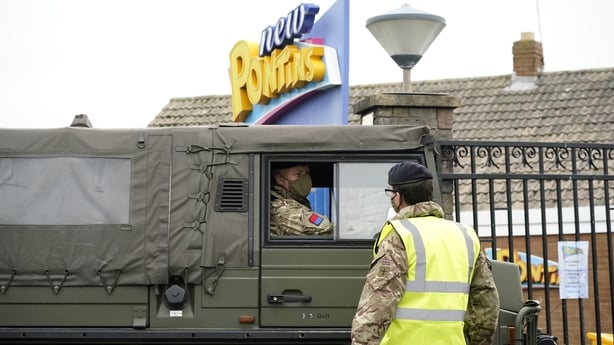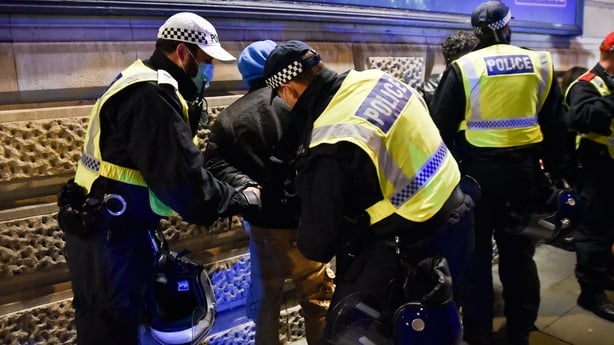Health experts said plans to screen the population of Liverpool for coronavirus were not fit for purpose.
Mass testing has got under way in the city in the first pilot study of its kind.
Everyone living or working in the city - including children - will be offered repeat tests, whether or not they have symptoms.
About 2,000 military personnel have been deployed to help deliver the programme with hundreds of soldiers taking over a local Pontins holiday park.
The two-week pilot scheme will see half a million people across Liverpool offered regular testing from today.
However a group of academics, including Allyson Pollock, Professor of Public Health at Newcastle University, said plans to test asymptomatic people against SAGE advice to prioritise testing for those who were displaying symptoms.
In a letter sent to the city's MPs yesterday evening, they said "Searching for symptomless yet infectious people is like searching for needles that appear transiently in haystacks.
"The potential for harmful diversion of resources and public money is vast.
"Also of concern are the potential vested interests of commercial companies supplying new and as yet inadequately evaluated tests."
And Angela Raffle, a consultant in Public Health based in Bristol, warned the half a billion pound project could be a costly failure.

Jurgen Klopp, manager of Liverpool football team, urged people to get tested.
"Do it for yourself, your family, your colleagues and your city.
"Let's do it together, let's do it for Liverpool," he said in a video message posted on the club's Twitter account.
But it comes as the Guardian newspaper reported that a rapid coronavirus test at the heart of the strategy missed more than 50% of positive cases in a Greater Manchester pilot.
Jürgen Klopp with a message for the people of Liverpool...
— Liverpool FC (@LFC) November 5, 2020
Let's start the fightback against COVID - #LetsGetTested ✊
Full information on the city's mass testing scheme: https://t.co/gHxwrfFQeY pic.twitter.com/xM6aifi9SK
Last night, police arrested 104 anti-lockdown protesters as hundreds of people marched through the streets of central London after tougher coronavirus rules came into force in England, affecting 56 million people.
Pubs, restaurants and non-essential shops have closed their doors under the latest four-week lockdown and people have been told to stay at home, but schools, universities and nurseries are remaining open.
Officers urged demonstrators to go home as they took to the streets near Trafalgar Square, warning those who had gathered that they were breaching coronavirus restrictions.
Protesters, very few of whom were wearing face coverings, began to walk up the Strand soon after 6pm, chanting "freedom" and "no more lockdown".

The Met said in a statement the majority of arrests were for breaches of the new regulations and the number of arrests was expected to increase as the operation continued through the night.
British Prime Minister Boris Johnson yesterday insisted test and trace is improving after it recorded a record low for contacts reached in England but acknowledged "frustrations" with the system and accepted it "hasn't had as much impact as we would have wanted".
He also insisted four weeks of lockdown should be enough to drive down the spread of coronavirus so the severe restrictions can be eased.
"The advice I have received suggests that four weeks is enough for these measures to make a real impact," he told a Downing Street press conference.
"These rules will expire and on 2 December we plan to move back to a tiered approach. There is light at the end of the tunnel.
"These are difficult times. While it pains me to have to ask once again for so many to give up so much, I know we can get through this."
Britain has recorded nearly 48,000 deaths linked to the coronavirus from more than one million positive cases.
Simon Stevens, the head of the state-run National Health Service (NHS) in England, urged compliance and warned: "This second wave of Covid is real and it is serious.
"Today's infection is the intensive care order book for a fortnight's time," he added, noting the total number of patients admitted to hospital had shot up from below 500 in early September to more than 11,000.

